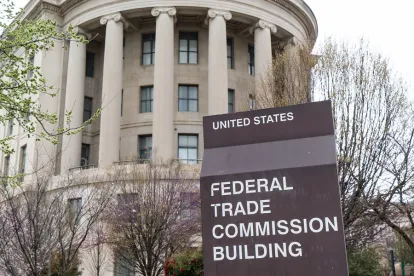At the same time as it issued its notice of proposed rulemaking expanding the definition of “person,” the Federal Trade Commission (“FTC”) issued an advance notice of proposed rulemaking (“ANPRM”) to request information related to seven topics “to help determine the path” for future amendments to the HSR Rules. In explaining the reasons for the ANPRM, the FTC expressed its strong interest in making sure the Rules are “as current and relevant as possible,” And observed that certain of the Rules, some of which have not been changed since they were first promulgated in 1978, may need updating. The ANPRM contains more than forty pages of questions soliciting information to help determine the need for “potential future amendments to numerous provisions” of the Rules.
The topics addressed in the ANPRM are:
I. Size of Transaction
A. Acquisition Price – The FTC’s Premerger Notification Office (the “PNO”) has long taken the position that debt may be excluded from the acquisition price in certain circumstances and certain expenses (e.g., transaction expenses) may also be deducted. As these informal PNO staff positions can have a significant impact on the acquisition price and, in turn, whether an acquisition is reportable, the FTC believes these informal positions may need revision.
B. Fair Market Value – In many circumstances, the calculation of Fair Market Value (“FMV”) is important to determining the reportability of a transaction. Although the acquiring person or its delegate is responsible for determining FMV in good faith, there is no requirement to share with the Antitrust Agencies the details of how FMV was determined. Thus, the ANPRM asks a list of questions to help better understand how acquiring persons determine FMV.
II. Real Estate Investment Trusts
When Congress created real estate investment trusts (“REITs”) in 1960, they were meant to be limited to passive income from real estate investments, rather than income from the active operation of real estate businesses. As a result, the PNO has long taken the position that the acquisition of real estate by a REIT is exempt from reporting by the HSR Act’s statutory exemption of acquisitions in the ordinary course of business.
However, the Internal Revenue Service has made changes in tax law to remove restrictions on REITs and many are engaged in the active operation of businesses. Due to these changes, the blanket exemption for a REIT’s acquisition of real property may no longer be appropriate, and the FTC would like a more detailed understanding of the present structure and operation of REITs.
III. Non-Corporate Entities
The role of non-corporate entities (e.g., partnerships and limited liability companies) continues to evolve and expand. They are increasingly engaging in acquiring interests in other corporate and unincorporated entities, and acquisitions of non-corporate interests appear to be deemed more like voting securities. Thus, the FTC believes it is appropriate to re-evaluate the nature of non-corporate entities to determine whether they are the equivalent of corporations and whether non-corporate interests function like voting securities.
IV. Acquisitions of Small Amounts of Voting Securities
There has been a significant expansion of the holdings of investment entities, including investment funds and institutional investors, as well as expanded interest in and ability of such shareholders to participate in corporate governance. In addition, some investment entities hold small stakes in a large number of firms, including competitors, which has raised concerns about the competitive effects of such common ownership. The FTC is using the ANPRM to take a “fresh look” at the rules that apply to acquisitions of voting securities by investment entities.
V. Influence Outside the Scope of Voting Securities
There are ways to gain influence over a company without the acquisition of the right to vote for the election of directors inherent in voting securities. The acquisition of convertible voting securities or board observer rights could each result in such influence. Currently, neither are reportable events under the HSR Act. Therefore, the FTC needs to ascertain whether the acquisition of such rights should be reportable events.
VI. Transactions or Devices for Avoidance
The PNO staff has an informal position that if a target pays an extraordinary dividend prior to its acquisition, such a payment is not a device for avoidance even if as a result of the dividend the target no longer meets the size-of-person test. But the FTC thinks there are situations where the purpose of such a payout may be more complicated, such as, if the payout involves more than the distribution of cash on hand. The FTC would like to understand the mechanisms by which targets engage in these and similar practices.
VII. Filing Issues
A. Acquisitions of Voting Securities That Do Not Cross the Next
Threshold – At present, filing parties have five years from the end of the HSR waiting period to acquire additional shares of the issuer without making another filing, as long as the additional acquisitions do not exceed the next reporting threshold. The FTC is concerned that changes in the parties’ lines of business could raise competitive concerns during the five year period, but no new filing would be required. Therefore, it seeks to understand the impact of shortening the five year period.
B. Prior Acquisitions – When the acquiring person and the acquired person report revenues in the same NAICS code, the acquiring person must report in Item 8 of the HSR Form certain acquisitions in the overlapping NAICS code during the previous five years. The FTC is concerned that Item 8 does not capture all competitively significant acquisitions. As a result, it is considering eliminating the overlapping NAICS code limitation and requiring the acquiring person to disclose all acquisitions meeting certain criteria during the previous five years.
The ANPRM has not yet been published in the Federal Register, which will commence a 60 day comment period. While it is uncertain what, if any changes to the HSR Rules the Agencies will propose as a result of the ANPRM, revisions in certain areas seem likely (e.g., acquisition price, REITs and non-corporate entities). Such changes could have a significant impact upon HSR reporting and review.





 />i
/>i
